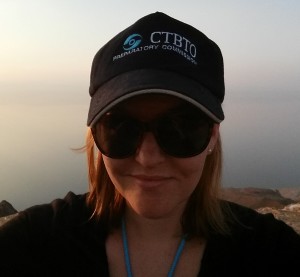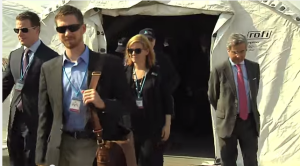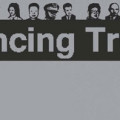 Alexandra Bell, originally from Tuxedo, North Carolina, graduated from the GPIA program at The New School in May 2006. Prior to attending The New School, she received a B.A. in Peace, War and Defense from the University of North Carolina at Chapel Hill and was a Peace Corps Volunteer in Jamaica. Upon graduating from The New School, Alexandra held various positions including nuclear policy research assistant at the Center for American Progress, project manager at the Ploughshares Fund, and public and congressional affairs advisor in the Department of State Bureau of Arms Control, Verification and Compliance. Presently, she is Director for Strategic Outreach in the Office of the Under Secretary for Arms Control and International Security at the Department of State.
Alexandra Bell, originally from Tuxedo, North Carolina, graduated from the GPIA program at The New School in May 2006. Prior to attending The New School, she received a B.A. in Peace, War and Defense from the University of North Carolina at Chapel Hill and was a Peace Corps Volunteer in Jamaica. Upon graduating from The New School, Alexandra held various positions including nuclear policy research assistant at the Center for American Progress, project manager at the Ploughshares Fund, and public and congressional affairs advisor in the Department of State Bureau of Arms Control, Verification and Compliance. Presently, she is Director for Strategic Outreach in the Office of the Under Secretary for Arms Control and International Security at the Department of State.
[feather_share skin=”wheel” size=”24″]
What are your major responsibilities as the Director for Strategic Outreach?
The nice thing about the term “strategic outreach” is that it can cover all manner of things. Typically, it means that I am responsible for congressional affairs, press relations, and speechwriting for the Under Secretary. It can also mean working on projects with other offices at State or with other Departments and Agencies, meeting with faith-based and non-governmental community groups, or helping to encourage women and girls to pursue careers in STEM fields.
What is one major challenge you are currently facing or have overcome in your current position?
When you are dealing with the Hill, the press, and a schedule full of speaking engagements, staying on top of things is an ongoing challenge. I just try to keep a detailed list of what is on my plate, while being prepared for that list to get sidelined at any given moment, should a crisis arise.
In my previous position at State, I was part of the team working to secure the ratification of the New Strategic Arms Reduction Treaty (New START). For the nine days that Treaty was on the Senate floor, I don’t think I slept much at all and I know I watched enough CSPAN to set some sort of a record. In the end, the Senate gave its advice and consent to ratification and the implementation of this Treaty is now well underway. When it is completed, we will have the lowest levels of deployed strategic nuclear arms since the 1950’s. I am grateful to have even been a small part of that effort.
 What do you like most about your job at State?
What do you like most about your job at State?
First, I have a really great boss and I am acutely aware of the fact that not everyone in DC can say that. Second, every day can present new challenges and new opportunities. I am certainly never bored! Third, I really believe in the policy goals on which I am working. That makes all the hard work worth it.
What experiences most prepared you for your current position?
Without a doubt, my Peace Corps service helped prepare me for a job where there is a premium on patience and persistence. The education I received at both the New School and the University of North Carolina at Chapel Hill was also instrumental in preparing me for this job. Finally, I let myself try different things along the way. My varied experiences give me a different perspective from people who took a more narrow approach to their studies and career path. That perspective is often what helps me find creative solutions to the challenges I face.
Why did you choose to attend the Graduate Program in International Affairs at The New School?
After finishing the Peace Corps, I knew I wanted to pursue a degree that would allow me to focus on conflict and security issues. On a less academic note, I knew I wanted to study in New York. GPIA allowed me do both. The program provided a base of knowledge essential to pursuing a career in international security, while also giving me the freedom to explore my own interests.
What was the best part about being a student at The New School?
The other students were the best part! So many of my classmates are now doing amazing things around the country and the world and I am glad to call them friends.
I was also a huge fan of the fact that GPIA wanted me to help shape my experience there. When I wanted to spend the summer between my first and second year working at a media outlet in Hong Kong, my professors helped facilitate that. When I wanted to go in a slightly less common (for GPIA) direction and write my thesis about issues relating to biological weapons, my professors supported me wholeheartedly. I don’t know if that would have happened at every school.
What advice would you give to students who would like to hold a position similar to yours one day?
Three things come to mind.
First, sometimes the best thing that can happen to you is failure. I moved down to DC for a job that fell through and I was crushed. It ended up being the best thing that could have happened. If I had gotten that job, I would have never worked at a think tank or on the 2008 Obama Presidential Campaign Nonproliferation Policy Team. Without those experiences, I would have never become a political appointee in the Obama Administration.
Second, no matter what obstacles get in the way of your goals, keep pushing. I did not have a direct path to my current job, but I never stopped pushing and ended up doing exactly what I wanted to be doing.
Third, I have always tended to raise my hand when someone asks for volunteers. Turns out that habit is much appreciated in Washington and I have been rewarded for it. So, don’t be shy and raise your hand!




